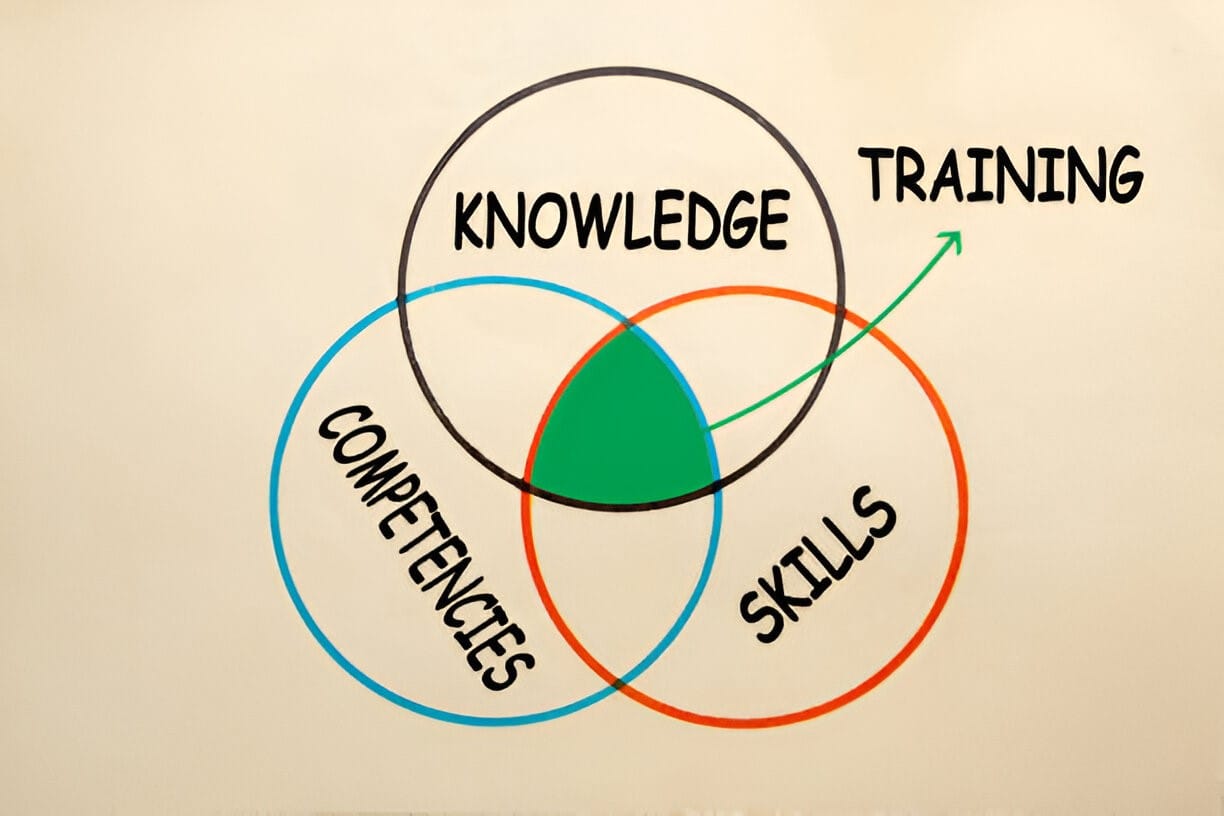Is Marketing a Good Career?

The marketing world has undergone a remarkable transformation in recent years, making it one of the most dynamic and promising career paths for today's students. Gone are the days when marketing meant creating catchy advertisements or managing traditional sales channels.
The digital revolution has breathed new life into this field, opening diverse opportunities that blend traditional marketing principles and digital creativity with data-driven decision-making. Let’s break down why marketing can be a highly rewarding career.
Why Pursue a Career in Marketing?

Here's something most career counselors won't tell you upfront: marketing isn't just another business function. It is a core revenue-generating function that directly impacts a company's financial performance.
To explain most simply, in the corporate world, roles typically fall into two categories: those that directly help generate revenue for a company and those that support various company operations but have limited to no impact in driving revenue. Hence, they are known as revenue-centric and cost-centric roles, respectively.
When a marketing team launches a successful campaign, it translates into tangible sales. Whether it's through digital advertising, brand campaigns, or product launches, marketing initiatives have a direct correlation with revenue growth.
Their contribution is also highly measurable due to scales like return on marketing investment (ROMI), conversion rates, customer acquisition costs, etc., which translates to faster career growth and better recognition. Let’s explore additional reasons why marketing is an excellent career choice.
The Evolution of Marketing Roles
We also know that the corporate world is going through a rapid digitization process, giving rise to digital-first industries and roles. Marketing is one such industry that is witnessing this firsthand, as some of the new-age roles like brand manager, digital marketing manager, and eCommerce specialist are highly specialized in nature.
May it be digitally native companies like Amazon or digitally accelerating companies like HUL and Nestle, the investments they are making to enhance their digital capabilities are heavy.
Consequently, roles that combine revenue-focused responsibilities with digital expertise are among the fastest-growing and most sought-after. It is evident by the fact that marketing attracts 60% of top B-school graduates, and most CEOs hail from marketing and sales backgrounds.
Long-Term Employment
Marketing offers stability and growth prospects, making it a long-term career choice. Companies recognize the importance of strong marketing teams for driving revenue, which ensures consistent demand for marketing professionals.
Additionally, marketing provides a clear path for career progression. From entry-level roles such as marketing assistant to senior positions like marketing director, the opportunities to advance are numerous.
Diverse Disciplines
One of the most exciting aspects of marketing is its variety. It spans a wide range of disciplines, allowing professionals to find a niche that aligns with their skills and interests.
Key areas of focus include:
- Digital Marketing: Utilizing online platforms such as social media, SEO, and email campaigns to drive results.
- Brand Management: Shaping and maintaining a company’s brand identity.
- Market Research: Analyzing consumer behavior to guide marketing strategies.
- Public Relations: Building and maintaining positive relationships between the company and its audience.
- E-commerce: Driving online sales through innovative marketing strategies.
This diversity ensures that the scope of marketing professionals can grow continuously and pivot their careers in line with their interests and industry trends.
High Salary Potential
Marketing professionals enjoy competitive salaries as their contributions directly impact the bottom line of a company. Entry-level marketers can build a strong foundation, while those in specialized or leadership positions can command lucrative compensation packages.
The increasing focus on digital-first roles also means that professionals with expertise in areas like data analytics, performance marketing, and SEO are in high demand, often leading to higher earning potential.
Variety of Work Responsibilities
In marketing, no two days are the same. The field is characterized by its dynamic nature, requiring professionals to juggle multiple responsibilities, from strategizing campaigns and analyzing performance metrics to collaborating with creative teams and engaging with customers.
For individuals who thrive on diversity and enjoy tackling new challenges, marketing offers a stimulating work environment. It’s a career where you can continuously learn and adapt, making every project an opportunity for growth.
What are the benefits of a marketing career?

A profession in marketing provides numerous advantages, making it a compelling choice for individuals with diverse abilities and career aspirations.
The Chance to Showcase Creativity
Marketing thrives on creativity, where innovative thinking is not just encouraged but a critical component of success. Professionals in marketing constantly devise innovative campaigns, craft compelling messages, and design visually appealing content to engage target audiences.
From designing logos and producing eye-catching advertisements to writing persuasive copies and creating immersive digital experiences, the opportunities to unleash your creative potential are endless.
High-Demand Skills and Job Stability
With companies increasingly turning to digital channels to engage consumers, the need for marketing professionals continues to grow. Expertise in data analysis, social media strategy, and content creation ensures robust job security and extensive career opportunities across sectors.
Marketing roles are not limited to specific sectors; whether it's tech, healthcare, retail, or entertainment, every industry needs skilled marketers to succeed.
Flexible Career Opportunities
Marketers benefit from the flexibility of choosing when and where to work. With the rise of remote work and freelance opportunities, marketers can often tailor their careers to suit their personal preferences and lifestyles.
Whether you choose to work for an agency, in-house at a company, or as an independent consultant, the possibilities are vast and adaptable.
Constant Learning and Development
The field of marketing is ever-changing, requiring professionals to stay current with emerging trends, cutting-edge tools, and evolving consumer preferences. While demanding, this dynamic environment is highly rewarding for those who value continual learning and adaptability. Whether it’s new algorithms, consumer behaviors, or emerging technologies, marketing ensures you’re always sharpening your skills.
Diverse Career Options
Marketing offers a broad range of career opportunities across various niches, including social media, content creation, event management, growth marketing, and branding. Unlike more rigid professions, marketing allows you to explore multiple paths, from graphic design to copywriting to account management, ensuring you can find a role that aligns with your passions and strengths.
What Skill are Essential for a Marketing Career?
Marketing encompasses a wide range of skills, combining innovative thinking with analytical prowess, strategic planning, and effective communication. Below is a breakdown of the key skills needed to thrive in a marketing career:
Creativity
Creativity is at the heart of marketing. Marketers must develop innovative ideas to capture the attention of their target audience and stand out in a crowded marketplace. Whether it's designing visually compelling ads, crafting catchy headlines, or coming up with unique marketing strategies, creativity enables marketers to engage consumers in fresh and impactful ways.
Digital Literacy
With the rise of digital-first roles, marketers need to be comfortable using various digital tools and platforms. This includes familiarity with social media, content management systems (CMS), email marketing platforms, and digital advertising tools (e.g., Google Ads, Facebook Ads). Proficiency in analytics tools such as Google Analytics and SEO knowledge is also crucial in today’s digital marketing environment.
Related Blog: What is Digital Education?
Communication Skills
Effective communication is crucial in marketing, as professionals need to convey messages clearly to customers, stakeholders, and team members. This includes both written and verbal communication. Whether you’re writing copy for ads, creating blog posts, or delivering presentations, the ability to express ideas persuasively and concisely is vital.
Analytical Skills
Modern marketing is highly reliant on data, necessitating the ability to assess trends, understand consumer behaviors, and evaluate campaign performance. Understanding key metrics like conversion rates, click-through rates, return on investment (ROI), etc., is important for optimizing marketing strategies. Strong analytical skills allow marketers to use data to make informed decisions and improve their campaigns.
Strategic Thinking
Marketing goes beyond clever advertisements; it’s about aligning promotional efforts with overarching business objectives. Marketers need to be able to develop long-term strategies that drive brand awareness, customer engagement, and sales. This requires thinking critically about the market, the competition, and the company’s unique value proposition, and then planning how best to communicate that to the target audience.
Adaptability
The marketing industry constantly shifts, bringing new tools, technologies, and consumer habits to the forefront. Successful marketers must be flexible and open to change, quickly adapting to new tools, platforms, and strategies. Staying updated on industry changes and learning to pivot, when necessary, will help marketers remain competitive.
Problem-Solving Abilities
Challenges and obstacles are inevitable in marketing, whether it’s a slow-performance campaign or changing market conditions. Marketing professionals need to be resourceful problem-solvers who can respond swiftly to challenges. Problem-solving skills enable marketers to identify issues early, develop creative solutions, and implement changes to keep campaigns on track.
What are Marketing Career Requirements?

Including the skills mentioned above, marketing requires a combination of education, Industry training, and competencies tailored to this dynamic and ever-evolving field. Here’s a detailed breakdown of what you need to succeed in marketing:
Educational Requirements
A strong educational foundation is crucial for a marketing career, though the path has evolved beyond traditional routes. While an MBA remains valuable, especially from top-tier business schools, specialized programs focused on digital marketing have become increasingly relevant.
Such programs deliver a blend of theoretical foundations and hands-on training tailored to industry needs. The key is to choose an educational pathway that offers both fundamental marketing principles and specialized digital marketing skills.
Related blog: Why Should You Pursue an MBA in Digital Marketing?
Technical Proficiency
Today's marketing roles demand strong technical capabilities gained through practical experience. Professionals must be proficient in digital marketing tools, analytics platforms, and customer relationship management systems, among various other evolving technologies.
This technical knowledge needs to be complemented by an understanding of digital transformation principles, as companies increasingly seek professionals who can navigate both traditional and digital marketing landscapes.
Practical Experience
Real-world experience has become increasingly crucial in marketing careers. This experience can be acquired through internships, practical projects, business simulations, and competitive case studies.
Consequently, many specialized, modern marketing postgraduate programs at top Indian B-schools emphasize hands-on experience. Students develop practical expertise by addressing real-world marketing problems and creating actionable solutions.
These criteria highlight the changing dynamics of marketing careers in today's digital-first world. As the field continues to evolve, marketing professionals must maintain flexibility and adaptability while building on these core requirements.
Summing Up
Marketing has emerged as a dynamic and rewarding career path in today's digital-first business world. As a revenue-centric role offering clear growth trajectories, competitive compensation, and diverse opportunities across industries, marketing provides an excellent platform for professional success.
The combination of creative challenges, analytical demands, and strategic thinking, coupled with the constant evolution of digital technologies, makes it an exciting field for those willing to learn and adapt.
Whether you choose traditional marketing roles or specialized digital positions, a career in marketing offers the unique opportunity to directly impact business growth while building a fulfilling professional journey.





